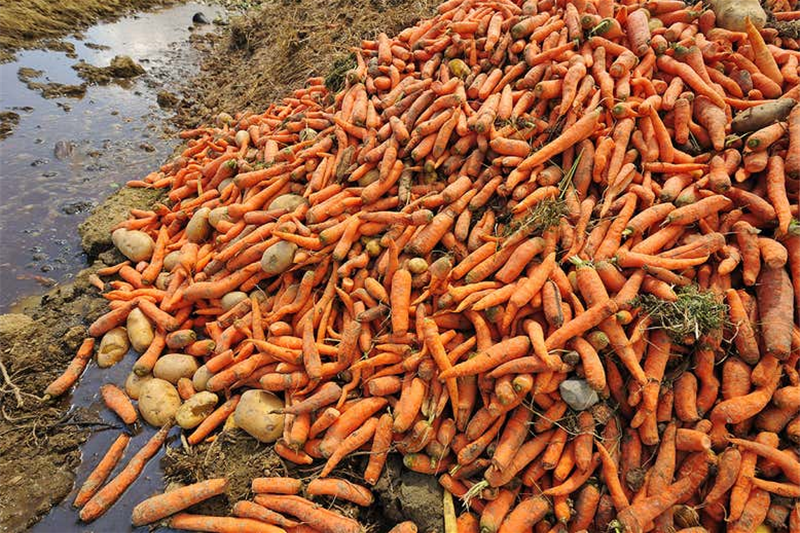The huge problem of food waste could be twice as big as we thought
Published: 18 Feb 2020

Consumers around the world could be wasting more than twice as much food as thought, according to an analysis that says previous estimates have been gross underestimates.
The Food and Agriculture Organization of the United Nations (FAO) said in 2011 that around a third of food is lost or wasted. This report is considered to have played a key role in food waste reduction becoming one of the world's Sustainable Development Goals.
But the widely cited estimate appears to be wrong when it comes to the amount of food people waste at home because it fails to account for affluence, and how much more the rich waste than poorer people.
"The problem is much worse than we think. We have to wake up. I hope it's a wake-up call," says Monika van den Bos Verma at Wageningen University & Research in the Netherlands.
She and her team took an unusual approach to calculate global food waste. Due to a scarcity of comparable national data on such waste around the world, they instead inferred it. First, they compared how much food is produced - based on UN data on its availability - and how much is eaten, as calculated by the energy people need to consume and World Health Organization data on body mass from 63 countries. Finally, they used World Bank data to factor in affluence.
The result: an average person wastes around 527 kilocalories (kcal) a day. That is about one-fifth of the 2500 kcals the average man needs to maintain a healthy body weight, according to the UK's National Health Service, or a quarter of the daily recommended intake for a woman. The previous FAO estimate of food waste per person only came to 214 kcals a day.
The new figures are for 2005, due to data availability and to allow a comparison to the UN research. Van den Bos Verma found that food waste starts to become a serious issue when people reach a total spending power of $6.70 a day.
She says the work shows the importance of looking at different consumer attributes. "Food waste is a luxury when you're poor, it's not when you're richer. The value of food, it goes down [as you get richer]. It's also availability: the more you have, the more you're likely to waste."
Food waste matters because of the hungry people it could have fed, the environmental impacts from producing food and the climate change contribution it has when disposed of in landfill.
There are limitations to the new analysis. It only covers 67 per cent of the world population, and doesn't draw on data from some big food-wasting countries, including the US.
The FAO says the research provides new insights, but should be viewed as part of a body of literature. Andrea Cattaneo at the FAO has some doubts about the results, such as Japan coming out as a country that wastes lots of food, which he says is unlikely to reflect the reality. "The study is by no means the definitive word on the levels of consumer waste," he says. "It is one more estimate."
The UK's waste agency, WRAP, says it has used a similar approach to the Dutch team, but found it tended to significantly overestimate the amount of food consumers waste. Rather than using modelling alone, it advises collecting real household waste data and getting people to keep waste diaries.
Van den Bos Verma says the biggest assumption the new analysis makes is that poorer countries will develop the same way as rich ones have in the past. That risks a "brewing potential future problem" of even more food waste, she and her colleagues warn. Fortunately, a spike in food waste isn't a given because public education programmes and cultural differences could alter behaviour, says Van den Bos Verma.
Further Information
For further information, please visit https://www.newscientist.com/article/2232923-the-huge-problem-of-food-waste-could-be-twice-as-big-as-we-thought/